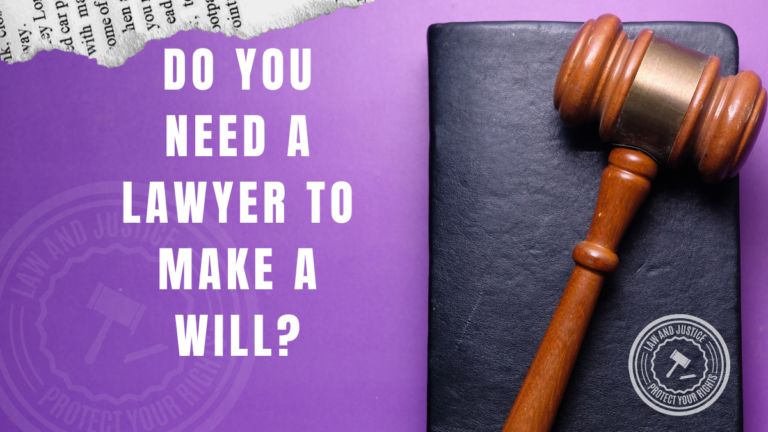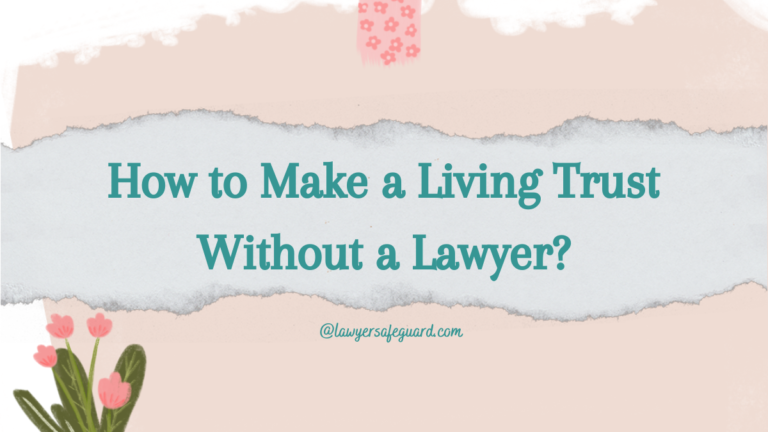Can You Get a Divorce Without a Lawyer?
Breaking up is hard to do, and when it comes to divorce, the process can often feel overwhelming. From dividing assets to settling child custody battles, the journey ahead seems like an endless maze of legal complexities. But what if I told you that there might be a way out of this labyrinth without emptying your pockets.
Yes, today we’re diving into the question on everyone’s mind: Can you get a divorce without a lawyer? Brace yourself for some surprising insights and alternative paths as we explore this captivating topic in our latest blog post.
What is Divorce?
Divorce is the legal process of ending a marriage. It can be a difficult and emotional time for both spouses. If you are considering divorce, you may be wondering if you need a lawyer.
The answer to this question depends on your individual situation. If you and your spouse are able to reach an agreement on all aspects of your divorce, then it is possible to get a divorce without a lawyer. However, if you are not able to reach an agreement, or if there are complex issues involved in your divorce, then it is advisable to seek the help of a lawyer.
A lawyer can help you navigate the legal process, and will represent you in court if necessary. They can also provide guidance and advice on how to best protect your interests during the divorce process.
Can You Get a Divorce Without a Lawyer?
If you and your spouse are in agreement about getting a divorce and can come to an agreement about the division of assets and custody of any minor children, then it is possible to get a divorce without hiring a lawyer. In some states, there are do-it-yourself divorce kits available that provide all the forms necessary to file for a divorce.
If you are not in agreement with your spouse about getting a divorce or cannot reach an agreement about the division of assets and custody of any minor children, then it is not recommended that you try to get a divorce without hiring a lawyer. The process will be more complicated and will likely take longer if you try to do it yourself.
Common Mistakes to Avoid if You Decide to File for a DIY Divorce
- One of the biggest mistakes you can make when filing for a DIY divorce is not being prepared. Make sure you have all the necessary paperwork and documents in order before starting the process.
- Another mistake is not being honest with yourself or your spouse about what you both want out of the divorce. Be realistic about what you can both live with in terms of property division, custody arrangements, and support payments.
- You should also avoid trying to do too much on your own. While it is possible to file for a DIY divorce, it’s important to understand that you may need to seek help from professionals at certain points during the process, such as when dividing up retirement accounts or dealing with complex financial issues.
- Don’t make the mistake of assuming that a DIY divorce will be cheaper than hiring a lawyer. While it may save you some money upfront, you may end up spending more in the long run if things get complicated or you make mistakes along the way.
Steps to Take When Filing for DIY Divorce
When you file for a DIY divorce, there are some important steps to take in order to ensure that the process goes smoothly. Here are some tips to keep in mind:
- Know the requirements for divorce in your state. Each state has different requirements for getting a divorce, so it’s important to be familiar with the laws in your area.
- Gather all of the necessary paperwork. In order to file for a DIY divorce, you’ll need to have all of the required documents on hand. These will vary depending on your state, but may include things like financial statements and property division agreements.
- File the paperwork with the court. Once you have everything in order, you can file your paperwork with the court system in your jurisdiction. Be sure to follow any deadlines and pay any associated fees.
- Serve your spouse with the divorce papers. Once you have filed for divorce, you will need to notify your spouse of the proceedings. This is typically done by serving them with the divorce papers. Again, be sure to follow any specific procedures required by your state law.
- Attend any required hearings or meetings. In some cases, you may be required to attend a hearing or meet with a mediator before finalizing your divorce. This will vary depending on your individual circumstances and state law.
By following these steps, you can successfully file for a DIY divorce without hiring an attorney
Resources for Filing for a DIY Divorce
If you’re considering a DIY divorce, there are some great resources available to help you through the process. The internet is a wealth of information, and there are many websites that offer helpful tips and advice for those considering a DIY divorce.
One of the most important things to do if you’re considering a DIY divorce is to educate yourself on the process. There are many books and articles available on the subject, and it’s important to understand all of the steps involved before you begin. You’ll also want to make sure that you have a complete understanding of your state’s divorce laws, as they can vary from state to state. Once you have a good understanding of the process and your state’s laws, you can begin researching the best way to proceed with your own divorce.
There are also many online resources available that can help you through the process. Many websites offer customizable divorce forms that you can use, and there are also many software programs available that can help you keep track of all of the paperwork involved in a divorce. If you’re feeling overwhelmed by the prospect of filing for a DIY divorce, these resources can be invaluable in helping you get through it.
Alternatives to DIY Divorces
If you and your spouse are on relatively good terms and can communicate effectively, you may be able to get a divorce without hiring a lawyer. You can either do this by representing yourselves in court or by using mediation.
If you choose to represent yourselves in court, you will need to fill out and file the necessary paperwork with the court. You will also need to attend hearings and, if necessary, trials. This process can be time-consuming and confusing, so it is important that you are prepared before embarking on it.
If you would prefer to avoid the courtroom altogether, mediation may be a good option for you. In mediation, a neutral third party will help you and your spouse reach an agreement on all aspects of your divorce, from child custody to property division. This can be a less stressful and more amicable way to divorce than going through the court system.

Conclusion
In conclusion, getting a divorce without a lawyer is not impossible but it can be difficult. It requires an understanding of the divorce process and legal system that could take considerable time to learn. Additionally, if you are unable to reach an agreement with your spouse, having a lawyer on your side might prove invaluable in ensuring fairness and protecting your rights and interests throughout the proceedings.
Ultimately, it’s important to weigh all of your options carefully before making any decisions about how to move forward with your divorce.






